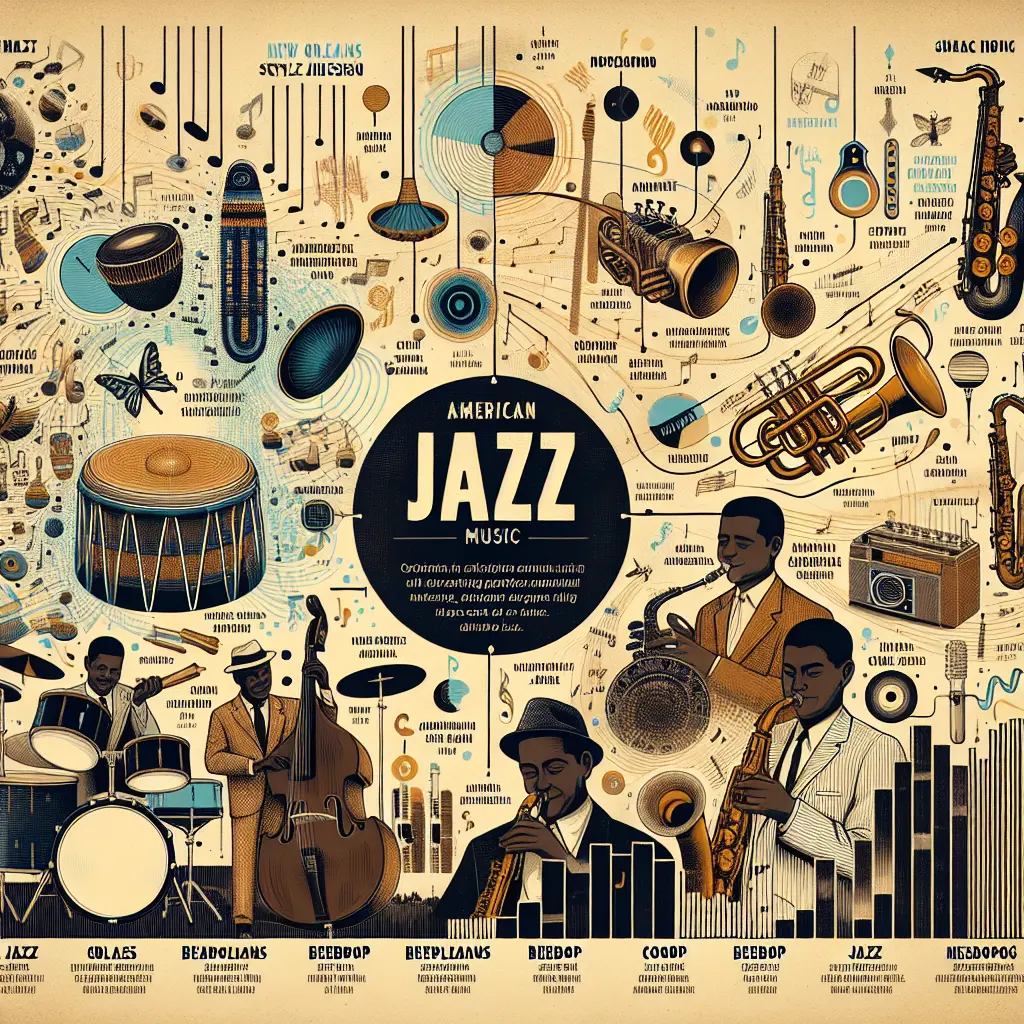
The rich tapestry of American jazz history is a colorful story of evolution, innovation, and profound cultural impact. Tracing back to its jazz music origins, the genre has undergone significant transformations, embodying the spirit and creativity of numerous American jazz artists. As we explore the evolution of jazz and its progression through different eras, we'll also touch on how modern events and popular culture continue to interact with and influence the genre.
Jazz Music Origins and Early Development
Jazz music, a quintessential part of American heritage, originated in the late 19th and early 20th centuries in New Orleans. Born from a blend of African rhythms, European harmonic structure, and the blues, jazz quickly established itself as a voice for America's soul. Key figures in jazz history like Louis Armstrong and Duke Ellington began to shape what would be known as one of the most innovative music forms worldwide. Their contributions marked significant milestones in jazz music, setting the stage for countless transformations.
Milestones and Jazz Styles Evolution
Throughout the decades, jazz has seen many stylistic changes—from the swing era of the 1930s to the bebop revolution in the 1940s, initiated by artists such as Charlie Parker and Dizzy Gillespie. Each period in the jazz music timeline brought its own innovations. The cool jazz of the 1950s, the complex rhythms of hard bop, the free jazz explorations in the 1960s, and the fusion genres of the 1970s each contributed to the jazz genre transformations.
Influence of Jazz Music and Cultural Impact
The influence of jazz music extends beyond mere entertainment; it has been a powerful vehicle for social change and expression throughout American history. Jazz provided a platform for African American voices during times of significant racial challenges. The cultural impact of jazz also includes its influence on other music genres, from rock and roll to hip hop, demonstrating its versatility and enduring appeal.
Recent Updates and Jazz Music's Ongoing Evolution
Interestingly, even as we discuss historical evolution, jazz remains relevant today, intersecting with modern cultural events and technological advancements. For instance, Google's recent partnership with Team USA to promote its products during the Olympic Games (source) showcases how tech companies value traditional American music as a means of enhancing their brand resonance.
Similarly, understanding modern cultural phenomena like the nuances between Miss USA and Miss America (source) helps us appreciate how jazz, often performed at these events, continues to be an integral part of American tradition. The pageantry background music often includes classic American jazz pieces, subtly influencing new audiences.
Moreover, jazz music continues to evolve through its incorporation into modern soundtracks and live performances at significant events. For instance, recent Olympic medal wins by Team USA in women's long jump (source) were celebrated with dynamic jazz performances, highlighting how jazz can still capture the triumph and excitement of such moments.
Key Figures in Jazz History and Innovations
The story of jazz would be incomplete without acknowledging the architects of its sound. Innovators like Miles Davis and John Coltrane pushed the boundaries of what jazz could be, introducing modal jazz and avant-garde styles that would dominate the genre's direction for years. Their work not only enriched the jazz music development but also inspired countless other musicians across different music spectrums.
Jazz Music Today
In today’s digital age, platforms like Google TV and Play are making it easier for new audiences to explore jazz through curated playlists and feature documentaries on jazz music innovations (source). This accessibility is crucial for keeping the genre alive and relevant, allowing new generations to discover the magic of jazz.
Concluding Thoughts
From its humble beginnings in New Orleans to its pervasive impact across various facets of global culture, jazz is undeniably a cornerstone of musical innovation and cultural expression. As we've seen through both its historical journey and its relevance in contemporary events like sports and national competitions, jazz remains a potent symbol of artistic integrity and freedom.
As we reflect on the growth of jazz in America and its enduring legacy, let us continue to embrace and support this incredible genre. Whether it's by exploring classic recordings, attending live jazz events, or simply sharing the stories of jazz's legendary figures, our engagement with this music can ensure that it remains vibrant for generations to come.
With warm regards, Felicity Harwood